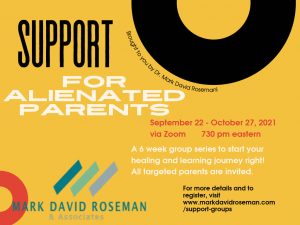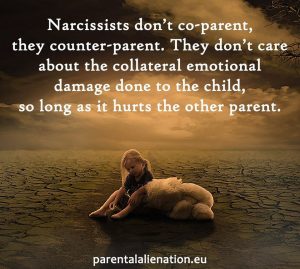I saw this post today on Facebook, and it might be helpful to some families dealing with Parental Alienation:
“Mark David Roseman and Associates offers its Fall 2021 support group for alienated parents, beginning September 22 via Zoom. This group is uniquely different in its compassion and understanding of parents on the journey of separation from their children, with facilitators who respect the healthy integration of mind, body and spirit.
Our group is spiritual, but we do not espouse any religious or political identity. We are fully committed to the healing of broken families, in order to restore what has been lost after high conflict.”
 Illinois Divorce Lawyer Blog
Illinois Divorce Lawyer Blog






